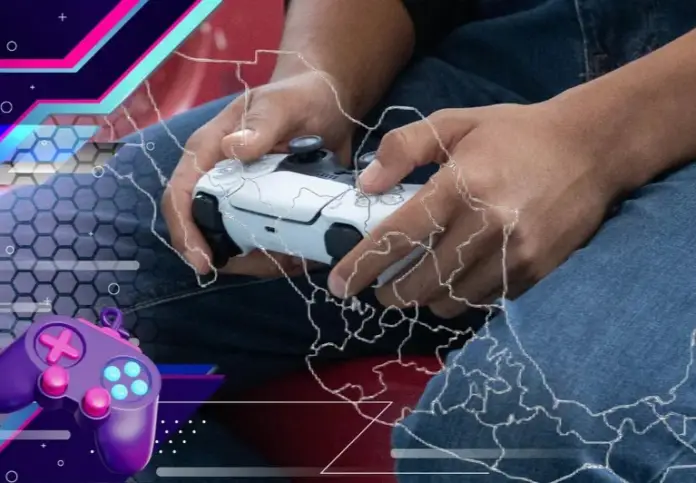The video game industry in Mexico has experienced accelerated growth in the last decade, positioning the country as the largest gaming market in Latin America and the tenth largest worldwide.
According to a report issued by Banco Santander and the Endeavor organization, the country has revenues exceeding $2.3 billion annually and more than 76 million active Mexican gamers, making it a strategic hub for developers, investors, and entrepreneurs seeking to take advantage of the digital entertainment boom.
However, its consolidation as a global power in this sector still faces crucial challenges that must be addressed to ensure its sustained expansion.
Mexico is the largest video game market in Latin America and the tenth largest worldwide.
The Mexican market already has the attention of major investors and emerging companies. By 2024, globally, $5 billion was allocated to video game startups, 65 percent of which was allocated to content development.
In this context, independent studios have achieved international recognition, such as Lienzo and Mecha Studios, which have released titles on platforms such as Xbox, PlayStation, and Nintendo.
Lienzo, a studio founded in Chihuahua in 2012, has stood out with titles such as Mulaka and Aztech Forgotten Gods, video games inspired by pre-Hispanic mythologies and cultures, which received positive reviews on Steam, highlighting their soundtrack and gameplay.
Mecha Studios, founded in 2016, focused on developing original gaming experiences, such as Neon City Riders and TYPECAST, featuring striking aesthetics and engaging mechanics.
These names are joined by other studios such as HyperBeard, developer of KleptoCats, a mobile game that surpassed 10 million downloads and secured commercial agreements with brands such as Funko and Scholastic.
What challenges does Mexico face in the sector?
Despite progress, Mexico faces significant barriers to consolidating its position as a global gaming hub: one of the main challenges is access to financing.
Unlike more developed markets like the United States or Japan, where multiple investment schemes exist for the industry, Mexican developers often face difficulties obtaining capital to scale their projects.
Another key obstacle is the technological and educational gap. Although Mexican talent in software development and video game design has amply demonstrated its capabilities, the academic ecosystem still lacks sufficient specialized programs to train future professionals in this industry.
In other countries, such as Canada and South Korea, the education sector works hand in hand with the industry to offer gaming-focused programs and certifications, which has driven its growth and created a breeding ground for internationally renowned developers.
Furthermore, global competition is a determining factor, where they clearly have an advantage over Latin American competitors. Large markets, led by the United States, China, and Japan, concentrate the main development studios, making it difficult for Mexican projects to enter the international industry.
Without adequate incentives, Mexican talent often seeks opportunities abroad rather than developing projects within the country.
How can Mexico leverage its position?
To capitalize on its leadership in Latin America and strengthen its presence in the global industry, Mexico could adopt a series of strategies focused on the development and consolidation of the sector:
Specialized education and training: It is essential to implement university and technical programs that train gaming professionals, from designers and programmers to specialists in video game narrative and business.
Access to financing and support: The creation of specific investment funds for video games and the granting of tax incentives can foster the growth of national studios, preventing talent from migrating to other countries.
Strategic alliances with the global industry: Promoting collaborations with major publishers and digital platforms will facilitate the commercialization of Mexican video games in international markets.
Strengthening the entrepreneurial ecosystem: Promoting specialized video game incubators and accelerators can create a more favorable environment for innovation and the development of competitive projects.
To transform Mexico’s potential into a sustainable economic engine, it is necessary to overcome the structural barriers that limit its growth. With the right support, the country will not only be able to maintain its leadership in Latin America, but could also compete with the major powers in the sector worldwide.
Source: milenio




